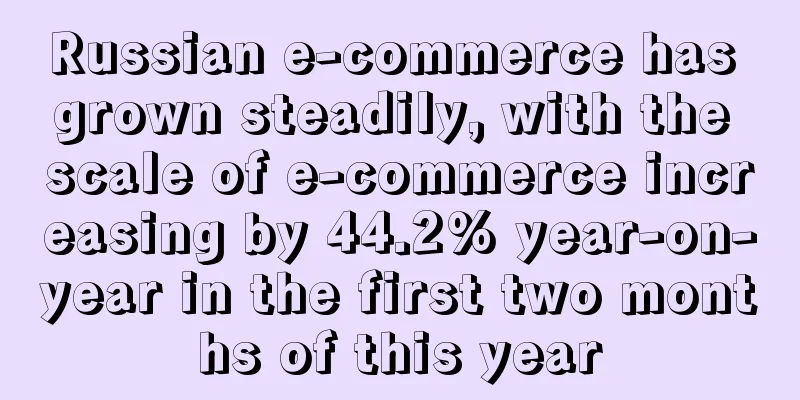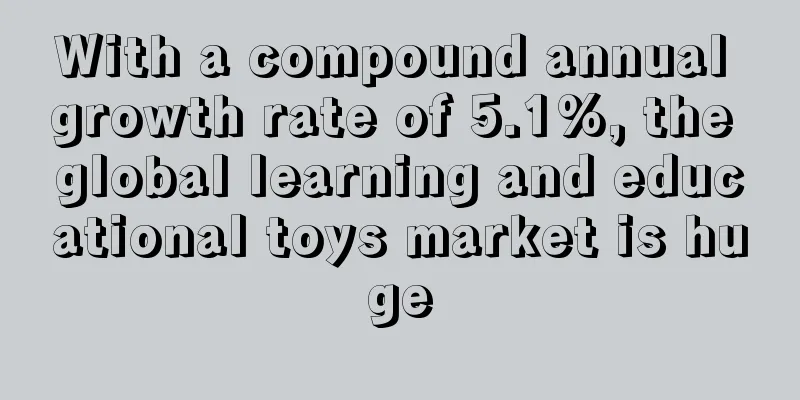Russian e-commerce has grown steadily, with the scale of e-commerce increasing by 44.2% year-on-year in the first two months of this year

|
Data shows that from January to February this year, the size of Russia's e-commerce market increased by 44.2% year-on-year to 431.3 billion rubles. The association said that against the backdrop of intensified competition and Russian companies improving service quality, Russia's domestic e-commerce market continued to grow steadily.
However, Russia's cross-border e-commerce transactions have declined. Data shows that in January this year, Russia's cross-border e-commerce transaction volume fell by 39% year-on-year, and in February it fell by 30% year-on-year. The decline in some categories has even reached 30% to 80%, such as clothing and footwear, electronic products, household appliances and children's products.
Last year, the decline in the cross-border transaction share of e-commerce in the AKIT Association was mainly related to the prevention and control measures implemented due to the COVID-19 pandemic. This year, the decline in the index is due to the strengthening of the Russian e-commerce market and technology, as well as the localization of foreign companies' business.
AKIT said: "Some multinational companies have begun to actively localize their businesses. These companies are willing to invest in establishing mature e-commerce platforms, investing in infrastructure development and creating jobs. In the first two months of 2021, localized cross-border business contributed more than 30 billion rubles to the Russian market. "
Fedor Virin, an expert at Data Insight, a data analysis agency, also confirmed that Russia's cross-border e-commerce transaction volume fell by more than 30% year-on-year last year. Due to the impact of the epidemic, cross-border transactions in the first half of last year were generally not optimistic. However, the situation improved in the second half of last year, and the decline in cross-border transaction volume was lower than in the first half of the year.
There are also different opinions on the impact of the epidemic on Russian e-commerce. Alexander Ivanov, head of the Russian Association of Remote Trade , said that due to epidemic prevention and control and the cold winter, the first two months of this year did not become a "dead season" for the retail industry, and the e-commerce market did grow. He also objected to AKIT's data, believing that the growth was much milder and the impact of the epidemic was exaggerated.
Elena Shutyuk, general manager of IML Logistics , said: "Starting last spring, traditional retailers began to actively develop their own online stores. Now, e-commerce sales have become mainstream." At the same time, like Alexander, she tends to believe that Russian e-commerce this year has not grown as much as last year.
In short, the Russian e-commerce market has great potential. With the construction of logistics infrastructure, the delivery time and logistics costs will be reduced, user services will be improved, and it will become more convenient to get orders from online stores. Russia |
<<: eBay Special: UPS rate changes effective April 11, 2021
>>: $84 billion hot market! Outdoor products are hot in the US
Recommend
Unable to beat Temu, the "king of volume"! Another US retailer collapses
In modern society, people's consumption has g...
Big sellers take collective action to unlock the code for sales growth during the peak season!
On the afternoon of December 8 , the Shenzhen sto...
What is NBA Official Store? NBA Official Store Review, Features
In addition to a ton of NBA gear like jerseys, t-...
Amazon joins hands with another country's customs to step up efforts to combat counterfeit goods
On June 30 , Amazon officially announced that its...
Amazon’s new feature is about to be launched, making it more convenient for sellers to claim compensation!
On July 15, 2021, Amazon will launch a new featur...
The epidemic has stimulated hot sales of office furniture in Southeast Asia!
Since the outbreak of the pandemic, people’s work...
Home and decoration product transactions in Brazil surge 300%
Recently, Latin American e-commerce platform Nuve...
New rules! Amazon sellers who do not fill in the attributes as required will have their products removed from search
The editor learned that Amazon will introduce a n...
What is Aloha? Aloha Review, Features
Aloha is an organic plant-based protein brand tha...
Earning $140,000 a day, the huge profits and abyss behind "Changyuan"
Wireless earphones are gradually replacing wired ...
Awesome! With over 120 million monthly visits, Tokopedia is once again the leader
As the largest and most popular e-commerce platfo...
Japan: 1.3 million households with assets exceeding 100 million yen
The latest survey data released by Nomura Researc...
What is MPQ? MPQ Review, Features
MPQ is the abbreviation of Minimum Pack Quantity....
Data is out! Lazada and Shopee dominate Southeast Asia, three markets worth paying attention to
In recent years, the European and American market...
What is Flying Eagle International Logistics? Flying Eagle International Logistics Review, Features
Founded in 2013, Eagle International Logistics is ...









